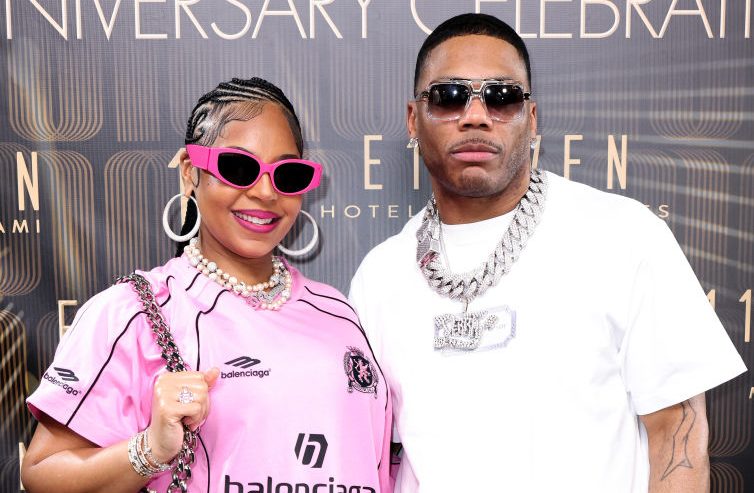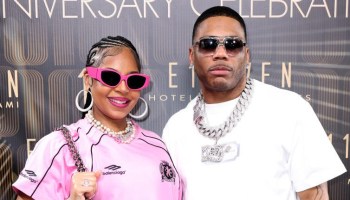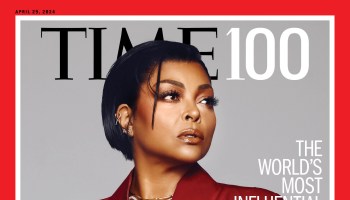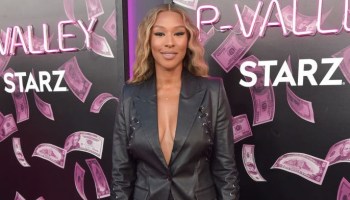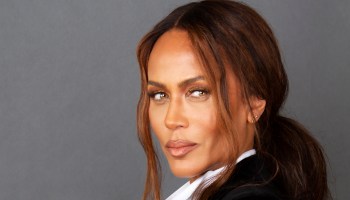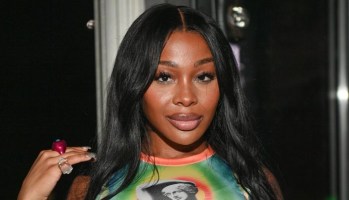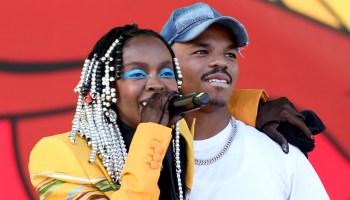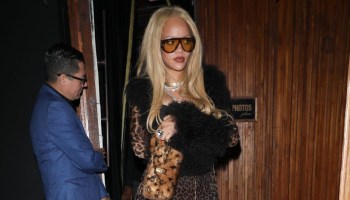Kevin Powell will be appearing on Oprah Thursday March 19th discussing domestic violence. Check your local listings for times and channel.
Given all the hype and controversy around Chris Brown’s alleged beating of Rihanna, I feel compelled to post this essay I originally wrote in late 2007, so that some of us can have an honest jump off point to discuss male violence against females, to discuss the need for ownership of past pains and traumas, to discuss the critical importance of therapy and healing.
Let us pray for Rihanna, first and foremost, because no one deserves to be beaten, or beaten up. No one. And let us also pray that Chris Brown gets the help he needs by way of long-term counseling and alternative definitions of manhood rooted in nonviolence, real love, and, alas, real peace. And let us not forget that Rihanna and Chris Brown happen to be major pop stars, hence all the media coverage, blogs, etc.
Violence against women and girls happen every single day on this planet without any notice from most of us. Until we begin to address that hard fact, until we all, males and females alike, make a commitment to ending the conditions that create that destructive behavior in the first place, it will not end any time soon. There will be more Rihannas and more Chris Browns.
These are excerpts from the original essay. The entire piece can be found in the new book “THE BLACK MALE HANDBOOK“.
1. Own the fact that you have made a very serious mistake, that you’ve committed an offense, whatever it is, against a woman or a girl. Denial, passing blame, and not taking full responsibility, is simply not acceptable.
2. Get help as quickly as you can in the form of counseling or therapy for your violent behavior. YOU must be willing to take this very necessary step. If you don’t know where to turn for help, I advise visiting the website www.menstoppingviolence.org, an important organization, based in Atlanta, that can give you a starting point and some suggestions. Also visit www.usdoj.gov where you can find helpful information on what men and boys can do to get help for themselves. Get your hands on and watch Aishah Shahidah Simmons’ critically important documentary film NO! as soon as you are able. You can order it at http://www.notherapedocumentary.org. NO! is, specifically, about the history of rape and sexual assault in Black America, but that film has made its way around the globe and from that very specific narrative comes some very hard and real truths about male violence against females that is universal, that applies to us all, regardless of our race or culture.
Also get a copy of Byron Hurt’s Beyond Beats and Rhymes, perhaps the most important documentary film ever made about the relationship between American popular culture and American manhood. Don’t just watch these films, watch them with other men, and watch them with an eye toward critical thinking, healing, and growth, even if they make you angry or very comfortable. And although it may be difficult and painful, you must be willing to dig into your past, into the family and environment you’ve come from, to begin to understand the root causes of your violent behavior.
3. Learn to listen to the voices of women and girls. And once we learn how to listen, we must truly hear their concerns, their hopes and their fears. Given that America was founded on sexism-on the belief system of male dominance and privilege-as much as it was founded on the belief systems of racism and classism, all of us are raised and socialized to believe that women and girls are unequal to men and boys, that they are nothing more than mothers, lovers, or sexual objects, that it is okay to call them names, to touch them without their permission, to be violent toward them physically, emotionally, spiritually-or all of the above. This mindset, unfortunately, is reinforced in much of our educational curriculum, from preschool right through college, through the popular culture we digest every single day through music, sports, books, films, and the internet, and through our male peers who often do not know any better either-because they had not learned to listen to women’s voices either. It all begins with a very simple question we males should ask each and every woman in our lives: Have you ever been physically abused or battered by a man?
4. To paraphrase Gandhi, make a conscious decision to be the change we need to see. Question where and how you’ve received your definitions of manhood to this point. This is not easy as a man in a male-dominated society because it means you have to question every single privilege men have vis-à-vis women. It means that you might have to give up something or some things that have historically benefited you because of your gender. And people who are privileged, who are in positions of power, are seldom willing to give up that privilege or power. But we must, because the alternative is to continue to hear stories of women and girls being beaten, raped, or murdered by some male in their environment, be it the college campus, the inner city, the church, or corporate America. And we men and boys need to come to a realization that sexism-the belief that women and girls are inferior to men and boys, that this really is a man’s world, and the female is just here to serve our needs regardless of how we treat them-is as destructive to ourselves as it is to women and girls. As I’ve said in many speeches through the years, even if you are not the kind of man who would ever yell at a woman, curse at a woman, touch a woman in a public or private space without her permission, hit or beat a woman, much less kill a woman-you are just as guilty if you see other men and boys doing these things and you say or do nothing to stop them.
5. Become a consistent and reliable male ally to women and girls. More of us men and boys need to take public stands in opposition to violence against women and girls. That means we cannot be afraid to be the only male speaking out against such an injustice. It also means that no matter what kind of male you are, working-class or middle-class or super-wealthy, no matter what race, no matter what educational background, and so on, that you can begin to use language that supports and affirms the lives and humanity of women and girls. You can actually be friends with females, and not merely view them as sexual partners to be conquered. Stop saying “boys will be boys” when you see male children fighting or being aggressive or acting up. Do not sexually harass women you work with then try to brush it off if a woman challenges you on the harassment. If you can’t get over a breakup, get counseling. As a male ally, help women friends leave bad or abusive relationships. Do not criticize economically independent women because this independence helps free them in many cases from staying in abusive situations. Donate money, food, or clothing to battered women’s shelters or other women’s causes. Do not ever respond to a female friend with “Oh you’re just an angry woman.” This diminishes the real criticisms women may have about their male partners. American male voices I greatly admire, who also put forth suggestions for what we men and boys can do to be allies to women and girls, include Michael Kimmel, Jackson Katz, Charles Knight, Mark Anthony Neal, Jelani Cobb, Charlie Braxton, and Byron Hurt.
6. Challenge other males about their physical, emotional, and spiritual violence towards women and girls. Again, this is not a popular thing to do, especially when so many men and boys do not even believe that there is a gender violence problem in America. But challenge we must when we hear about abusive or destructive behavior being committed by our friends or peers.
7. Create a new kind of man, a new kind of boy. Violence against women and girls will never end if we males continue to live according to definitions of self that are rooted in violence, domination, and sexism. I have been saying for the past few years that more American males have got to make a conscious decision to redefine who we are, to look ourselves in the mirror and ask where we got these definitions of manhood and masculinity, to which we cling so tightly. Who do these definitions benefit and whom do they hurt? Who said manhood has to be connected to violence, competition, ego, and the inability to express ourselves? And while we’re asking questions, we need to thoroughly question the heroes we worship, too. How can we continue to salute Bill Clinton as a great president yet never ask why he has never taken full ownership for the numerous sexual indiscretions he has committed during his long marriage to Senator Hillary Clinton? How can we in the hip-hop nation continue to blindly idolize Tupac Shakur (whom I interviewed numerous times while working at Vibe, and whom I loved like a brother) but never question how he could celebrate women in songs like “Keep Ya Head Up?” and “Dear Mama,” on the one hand, but completely denigrate women in songs like “Wonda Y They Call U Bitch”? What I am saying is that as we examine and struggle to redefine ourselves as men, we also have to make a commitment to questioning the manifestations of sexism all around us.
Kevin Powell is a writer, activist, and author of the new book THE BLACK MALE HANDBOOK. A native of Jersey City, NJ, Kevin is a long-time resident of Brooklyn, NY, where he ran for Congress in 2008. You can contact Kevin through his website kevinpowell.net.
What do you think of Kevin’s 7 steps? Share your thoughts!
